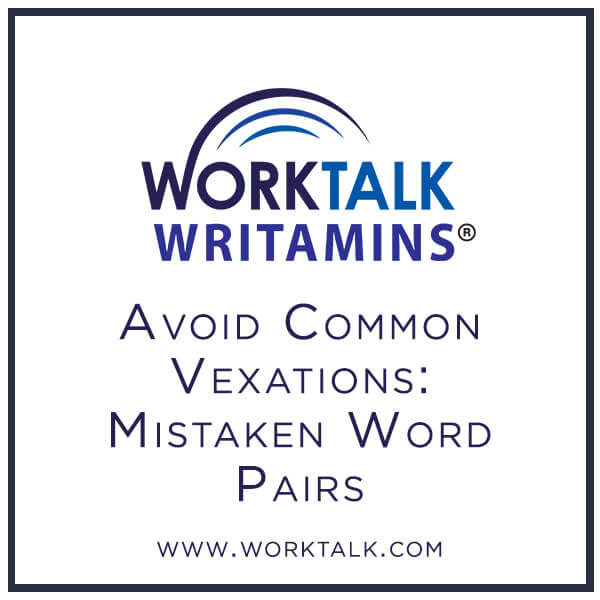[6-minute read]

A prominent attorney called me yesterday with an embarrassing question. “I’m helping my daughter write her college entrance essay, so we have to get this right,” he said. This man went to a well-known law school and earns a hefty salary in litigating complex cases. Nevertheless, he was stumped by one of the oldest questions around: the distinction between its and it’s. Fortunately, he called me before his daughter’s application was rejected on grammatical grounds.
My friend sensed an important truth: When the stakes are high, grammatical details matter. Court cases can be jeopardized, jobs can be lost, and deals can be derailed by “small errors” such as confusing your and you’re or their and there. Making these errors is like wearing a dirty shirt to an important meeting: They indicate that we are inattentive to detail, overly rushed, or ignorant of basic English.
When physical meetings are scarce, our written words carry greater weight than ever. As noted in a recent Wall Street Journal article, online meetings reduce the power of personal charm and focus people more on the words we speak and write. To maintain our credibility, we need to sweat the small stuff.
Frequently Mistaken Word Pairs
This Writamin reviews several of the most commonly confused word pairs in hopes for a brighter grammatical future in 2021.
Please forward this email to the next person you see who gets these words wrong. These definitions are excerpted from my book on business writing, Get to the Point!
To receive an 8-page list of frequently mistaken words, reply YES to this email.
advise versus advice
ADVISE (verb) means to inform, tell, or give notice to. ADVICE (noun) is an opinion about what could or should be done about a situation or problem.
I advise you not to take her advice.
affect versus effect
affect (verb or noun) in its verbal usage means to act on; to produce an effect; to impress the mind or move the feelings. As a noun, it is a psychological term that describes a person’s emotional state.
effect (noun or verb) means result or consequence. In general, you can simplify your life by using affect only as a verb and using effect only as a noun. By following this principle, you’ll minimize the likelihood of mixing up these two words.
His entire life has been affected by his inability to see the effect of his own actions.
lose versus loose
You know what LOSE (verb) means. It is the opposite of find or gain.
You know what LOOSE (adjective) means, too. It is the opposite of tight. So why have I included this word pair on this list? Because I have received writing samples containing sentences like “If we loose this account we may have difficulty meeting our sales quotas for the next quarter.”
Your loose speech may lead you to lose your job.
it’s/its
Its is a possessive pronoun only. It means “belonging to it”.
It’s is a contraction of the words “it is”.
If you are not sure which word to use, here is a simple test:
Replace the its or it’s with the words “it is”. If the sentence makes sense, use it’s. Otherwise use its.
The Post Office is going to raise its rates. It’s going to become more expensive to mail a letter.
their/they’re/there
When people write in a rush, they often stumble over words that sound alike but have different meanings. Proofread everything and you will not confuse these words.
their means “belonging to them”.
they’re is a contraction meaning “they are”.
there means “in or at that place”.
They’re going to leave their briefcases there.
your/you’re
your (pronoun) means belonging to you.
you’re (contraction) is a contraction of you and are.
Note that the response to “thank you” is “you’re welcome.”
So you’re the one who forgot your laptop.
Now that it’s the end of the year, your welcome to take my advise. It will have a good affect and you’re unlikely to loose any business because of making simple errors.
©2020 Elizabeth Danziger All rights reserved
Take me to your leader! Communication woes drain the lifeblood from an organization. Connect me with your decision-makers and see how Worktalk can transform communication in your world. Contact me at lizd@worktalk.com or 310.396.8303. You can also book through www.calendly.com/worktalk.
